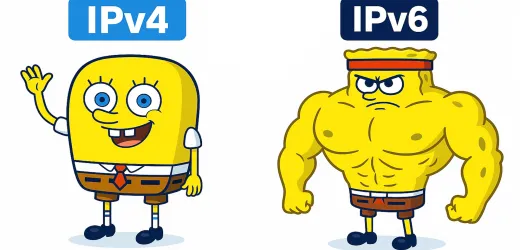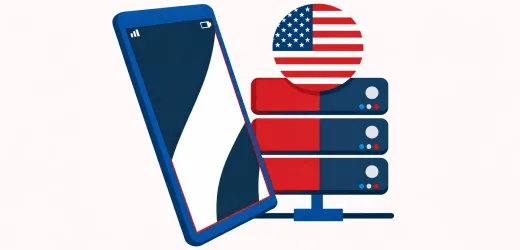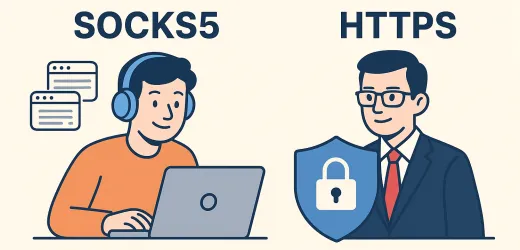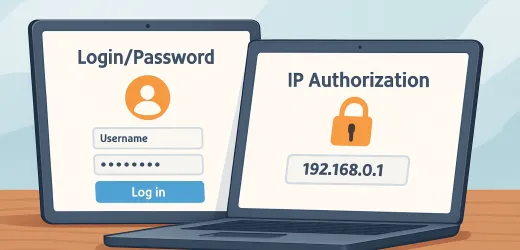IPv4 and IPv6 are versions of the Internet Protocol that allow the internet to communicate using each other’s IP addresses. Imagine an IP address as your home address. For a postal company to know where to deliver a package, it needs to know your address. The internet works the same way, every device with internet access must have an IP address, because without it, it would be impossible to know who made the request and to whom the response should be sent.
Before we discuss which protocol to choose when purchasing a proxy, we should first understand the differences between these two protocols.
IPv4
This is an internet protocol developed in 1981 and has the following format 192.0.2.1.
This protocol is based on 32-bit addresses, so there are only about 4.3 billion (2³²) IPv4 addresses. The problem is that 4.3 billion addresses are too few in today’s world, so IPv6 was introduced to replace it.
IPv6
This is an internet protocol that appeared in 1998 and has the following format: 2001:0db8:85a3:0000:0000:8a2e:0370:7334.
IPv6 completely solves the address shortage problem because it is based on 128-bit addresses, which is 2¹²⁸, practically infinite. Yes, it’s not as neat as IPv4, but does that really matter if we almost never see these IP addresses?
The difference between IPv4 and IPv6
-
Format. IPv4 looks familiar to us (192.0.2.1), while IPv6 is quite complex and unattractive (2001:0db8:85a3:0000:0000:8a2e:0370:7334).
-
Routing protocols. Since IPv6 is a newer version, it uses more efficient routing methods such as RIPng, OSPFv3, EIGRP, and BGP4+. IPv4 uses RIP, OSPF, and BGP. Because of this, IPv6 is considered faster than IPv4.
-
Number of IP addresses. As we've already established, there are only about 4.3 billion IPv4 addresses, while IPv6 addresses are almost infinite. Due to the scarcity of IPv4, they are more expensive than IPv6.
-
Compatibility issue. If you have an IPv6 address and want to access a website that only supports IPv4, you will not be able to access the site because of the different protocols. The good news is that if you have an IPv4 address, you can access any website without any issues, since when websites migrate to IPv6, they still support IPv4.
-
Encryption. IPv6 encrypts traffic, while IPv4 does not.
In summary, IPv6 is better than IPv4, but it can have compatibility issues if a website does not support IPv6.
Why doesn’t everyone switch to IPv6?
You might be wondering, if IPv6 solves the address shortage problem and is faster and cheaper than IPv4, then why doesn’t everyone just switch to IPv6?
The main reason is money. IP addresses are assigned by internet service providers, and switching to IPv6 is extremely expensive for them, so they are in no hurry to make the switch.
Also, IPv4 addresses are more popular than IPv6 due to compatibility issues. If a website only supports IPv4, you will not be able to access it from an IPv6 address. The good news is that many modern websites and providers support both protocols to ensure 100% access to the site regardless of the protocol.
Unfortunately, not everyone works on both protocols, and you can see this for yourself by visiting Google’s page: https://www.google.com/intl/en/ipv6/statistics.html. On that page, you can check the IPv6 adoption rate and the countries that are implementing IPv6 the most.
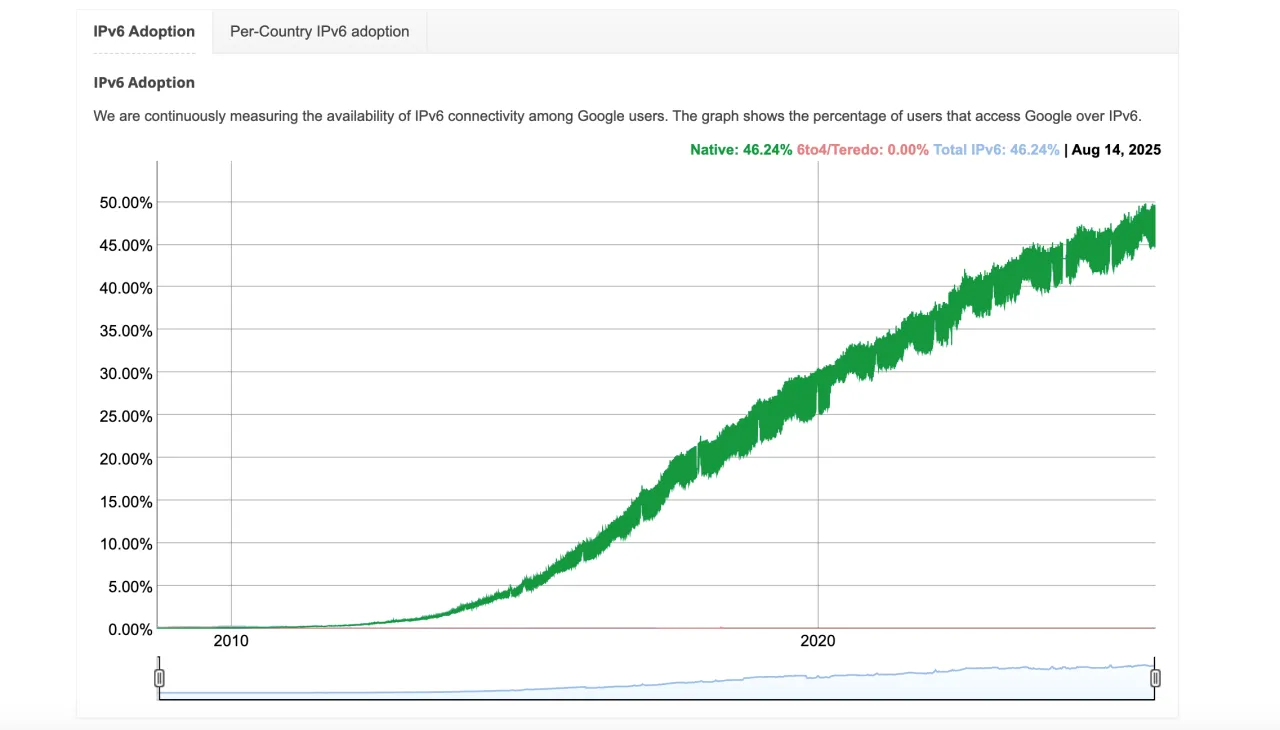
Undoubtedly, in about 50 years, IPv4 will become obsolete, but for now, that is not the case.
Which protocol should you choose when buying a proxy?
The answer is very simple. If the website or websites you plan to work with support IPv6, then it’s better to choose IPv6 since it’s cheaper than IPv4.
It’s also important to keep in mind that proxy providers only sell IPv6 server proxies, which are not suitable for all tasks. Therefore, you need to consider not only compatibility with the website but also whether server proxies are suitable for your needs.
If you still haven’t figured out which ones are right for you, then buy IPv4 — they will definitely work. You can choose a proxy provider in our proxy provider ranking. There is a filter that allows you to select a suitable provider based on many criteria.
We hope this article has helped you understand the main differences between IPv4 and IPv6. If you have any questions, feel free to ask them in the comments!





